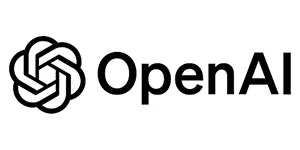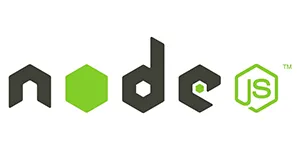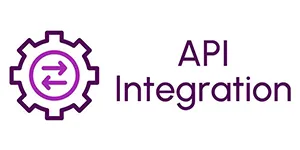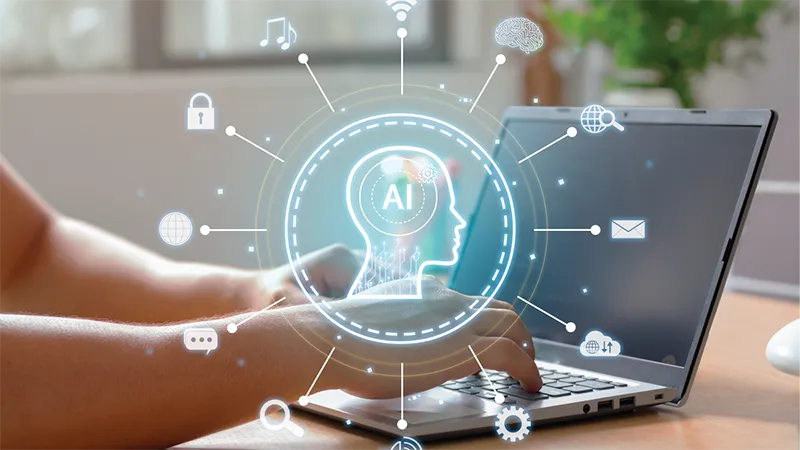Artificial Intelligence in Healthcare
Improving Patient Experience
In an age where technology is advancing at an unprecedented pace, the healthcare industry is experiencing a transformative shift with the integration of artificial intelligence (AI) phone agents. These intuitive AI assistants are not just enhancing operational efficiency. They are revolutionizing the way healthcare organizations engage with patients and streamline their services. From answering patient inquiries and scheduling appointments to providing personalized health information and support, AI phone agents are redefining the customer service and sales landscape within healthcare. As they become increasingly sophisticated, these intelligent systems offer numerous benefits such as reduced wait times, improved patient satisfaction, and cost savings for providers.







Introduction to AI in Healthcare
In recent years, the healthcare industry has witnessed a transformative shift seeing the highest benefits from AI of any industry, driven by advancements in technology and a growing demand for efficiency and personalized care. Artificial intelligence (AI) stands out as a game-changer, particularly in the realm of customer service and sales. Among these innovations, AI phone agents, powered by sophisticated algorithms and machine learning capabilities, are revolutionizing how healthcare organizations interact with patients and manage their operations.
Imagine a world where healthcare inquiries are handled seamlessly, where patients can receive immediate assistance at any hour, and where administrative tasks are streamlined, allowing healthcare providers to focus on what they do best: delivering exceptional care. AI phone agents are making this vision a reality. These intelligent systems can engage in real-time conversations, answering questions, scheduling appointments, and even providing basic health information, all while learning and adapting to better serve the needs of patients over time.
The integration of AI phone agents into healthcare not only enhances the patient experience but also drives operational efficiencies. By automating routine inquiries and processes, healthcare organizations can reduce wait times and minimize the burden on human staff, allowing them to dedicate more time to complex patient interactions that require a personal touch. Furthermore, AI can analyze vast amounts of data to identify trends, predict patient needs, and improve outreach efforts, ultimately leading to better health outcomes.
What are AI Phone Agents and where do they fit into Healthcare?
AI Phone Agents are advanced artificial intelligence systems designed to interact with customers over the phone, providing a seamless and efficient experience that mimics human conversation. These intelligent agents are powered by sophisticated natural language processing (NLP) algorithms, which enable them to understand, interpret, and respond to customer inquiries in real time. Unlike traditional automated systems that rely on pre-recorded messages and rigid prompts, AI Phone Agents can engage in fluid, dynamic dialogues, adapting their responses based on the context of the conversation and the unique needs of each caller.
One of the standout features of AI Phone Agents is their ability to learn from interactions. Through machine learning, these agents continually improve their performance by analyzing past conversations, identifying patterns, and integrating feedback. This ongoing refinement means that over time, AI Phone Agents become better at resolving issues, answering questions accurately, and providing personalized recommendations tailored to individual customer preferences.
In the context of healthcare, AI Phone Agents can serve a multitude of purposes. They can efficiently handle appointment scheduling, provide information about services, answer common patient questions, and even conduct follow-up calls to check on patient satisfaction. By automating these tasks, healthcare providers can free up valuable time for their staff, allowing human agents to focus on more complex inquiries that require empathy and nuanced understanding.
Moreover, AI Phone Agents operate 24/7, ensuring that patients have access to assistance whenever they need it, regardless of the time of day. This round-the-clock availability not only enhances patient satisfaction but also helps healthcare organizations streamline operations, reduce wait times, and increase overall efficiency. As healthcare continues to embrace digital transformation, AI Phone Agents are emerging as a crucial component of customer service and sales strategies, revolutionizing the way providers interact with patients and manage their operations.

The Role of AI Phone Agents in Patient & Customer Support
In the rapidly evolving landscape of healthcare, AI phone agents are emerging as transformative tools in patient support and customer service, revolutionizing the way patients and providers interact. These intelligent systems, powered by advanced machine learning algorithms, are designed to handle a myriad of tasks, from answering routine inquiries to assisting with appointment scheduling, all while providing a seamless and efficient experience for users.
One of the most significant advantages of AI in customer service is the ability to operate 24/7. Unlike traditional customer service representatives, AI agents are always available to address patient concerns, providing instant responses regardless of the time of day. This constant availability not only enhances patient satisfaction but also allows healthcare organizations to manage a higher volume of inquiries without compromising quality.
Moreover, AI phone agents can handle multiple interactions simultaneously, reducing wait times and ensuring that patients receive timely assistance. This feature is particularly beneficial during peak hours or in emergency situations, where every second counts. By alleviating the burden on human staff, AI agents free up valuable resources, allowing healthcare providers to focus on more complex tasks that require human empathy and expertise.
Additionally, AI phone agents are equipped with sophisticated natural language processing capabilities, allowing them to understand and respond to patient queries in a conversational manner. This human-like interaction fosters a sense of connection and trust, essential elements in healthcare communication. Patients feel heard and understood, which can significantly enhance their overall experience and encourage them to seek care proactively.
Furthermore, the data collected by AI phone agents can provide invaluable insights into patient behavior, preferences, and common concerns. Healthcare organizations can analyze this data to identify trends, improve service offerings, and tailor their communication strategies to better meet the needs of their patients. By leveraging this information, providers can enhance their service delivery, ultimately leading to improved patient outcomes.
In summary, AI phone agents are not just a trend, they are reshaping the landscape of customer service in healthcare. By providing instant support, enhancing accessibility, and delivering personalized interactions, these intelligent systems are helping to create a more efficient and patient-centered healthcare experience. As technology continues to advance, the integration of AI phone agents will likely become an integral part of healthcare customer service strategies, driving improved satisfaction and outcomes for patients and providers alike.
Enhancing Patient Experience with AI
The integration of AI phone agents into healthcare customer service and sales is a game-changer, significantly enhancing the patient experience in ways that were once unimaginable. These intelligent systems are designed to handle a myriad of tasks, from answering simple inquiries to managing complex appointment schedules, all while ensuring that patients feel valued and understood.
One of the most notable benefits of AI phone agents is their ability to provide immediate assistance. Patients no longer have to endure long wait times on hold or navigate through cumbersome phone trees. Instead, they can engage with an AI agent that is available 24/7, offering prompt responses to their questions about services, treatment options, or insurance coverage. This constant availability helps to alleviate anxiety and frustration, fostering a sense of trust and reliability in the healthcare provider.
Moreover, AI phone agents can personalize the patient experience by utilizing data analytics to recognize returning patients and their specific needs. For instance, an AI agent can recall a patient’s medical history or previous interactions, enabling it to offer tailored advice or reminders for follow-up appointments and medication refills. This level of personalization not only makes patients feel cared for but also encourages them to take an active role in managing their health.
In addition to improving communication, AI phone agents can streamline the appointment scheduling process. With just a few voice commands, patients can effortlessly book, reschedule, or cancel appointments, reducing the administrative burden on healthcare staff. This efficiency translates into a more organized system, allowing healthcare professionals to focus on providing quality care rather than getting bogged down in administrative tasks.
Furthermore, AI agents can also gather valuable feedback from patients after their interactions or visits. By using natural language processing to analyze responses, healthcare providers can gain insights into patient satisfaction and areas for improvement. This continuous feedback loop ensures that the services offered are always evolving to meet the needs of patients, resulting in a higher standard of care.
In essence, AI phone agents are not just tools for customer service, they are pivotal in reshaping the patient experience. By combining efficiency, personalization, and accessibility, they create an environment where patients feel heard, supported, and empowered in their healthcare journeys. As the healthcare sector continues to embrace technological advancements, the role of AI in enhancing patient experience will undoubtedly grow, marking a significant step towards more patient-centered care.

Streamlining Appointment Scheduling and Reminders
In healthcare, efficient appointment scheduling and timely reminders can significantly enhance the patient experience. AI phone agents are stepping in to revolutionize this process, making it simpler and more effective for both providers and patients. Imagine a world where patients no longer have to navigate convoluted phone menus or wait on hold for extended periods. With AI phone agents, appointment scheduling becomes a seamless interaction.
These intelligent systems can handle high volumes of calls, allowing patients to book, reschedule, or cancel appointments effortlessly, any time of the day. By understanding natural language and context, AI agents can engage in meaningful conversations, asking relevant questions to ensure that the appointment fits the patient's needs. This not only reduces the administrative burden on healthcare staff but also empowers patients by providing them with immediate access to vital services.
Moreover, AI phone agents are adept at sending out automated reminders, significantly decreasing the no-show rates that can disrupt a clinic's schedule and waste valuable resources. These reminders can be customized to suit patients' preferences, whether via phone call, text message, or email, ensuring that each person receives their notifications in a way that works best for them.
As a result, healthcare providers can focus more on delivering quality care rather than getting bogged down by administrative tasks. In this way, AI phone agents not only streamline appointment scheduling but also foster a more organized and patient-centered approach to healthcare service, ultimately enhancing overall satisfaction and loyalty.
The Evolution of AI in Healthcare
As we look ahead, the future of AI in healthcare is poised for remarkable transformation, driven by rapid technological advancements and an increasing reliance on data-driven solutions. The evolution of AI phone agents is just one facet of a broader trend reshaping the healthcare landscape. With the ongoing development of machine learning algorithms and natural language processing, these AI systems are becoming increasingly sophisticated, enabling them to understand and respond to patient queries with greater accuracy and empathy.
One pivotal trend is the integration of AI phone agents with telehealth services. As virtual consultations continue to gain traction, AI can serve as the first point of contact, efficiently gathering patient information and medical history before connecting them to a healthcare professional. This not only streamlines the process but also ensures that patients receive timely care, reducing wait times and improving overall satisfaction.
Moreover, AI’s predictive analytics capabilities are set to revolutionize patient care by enabling healthcare providers to anticipate patient needs and preferences. By analyzing patient data, AI phone agents can proactively reach out to patients for follow-up appointments, medication reminders, and wellness checks, fostering a more personalized approach to healthcare. This anticipatory model not only enhances patient engagement but also contributes to better health outcomes.
In addition, as AI technology continues to evolve, we can expect to see increased collaboration between AI and human agents. While AI phone agents excel in handling routine inquiries and administrative tasks, human agents will focus on complex cases that require emotional intelligence and nuanced decision-making. This symbiotic relationship will lead to improved efficiency and effectiveness in customer service and sales within the healthcare sector.
Lastly, as AI becomes more entrenched in healthcare, ethical considerations around data privacy and security will come to the forefront. Ensuring that AI phone systems are designed with robust safeguards to protect patient information will be vital in building trust and maintaining compliance with regulations.
In summary, the future of AI in healthcare is bright, with phone agents playing a crucial role in enhancing customer service and sales. By embracing these advancements, healthcare organizations can not only improve patient experiences but also drive operational efficiencies and foster a more innovative healthcare ecosystem. The evolution of AI is not just about technology; it’s about creating a more responsive, patient-centered approach to healthcare that ultimately benefits us all.
Ai won't replace your business.
BUT A COMPANY USING AI WILL.
Embrace Technology. Your Customers Deserve It.
Who can benefit from our Ai Custom Development Services?
Automotive Industry
Aviation Industry
Construction Companies
Education & Schools
Energy, Oil, and Gas
Entertainment Industry
Financial Services
Food & Hospitality Industry
Fundraising Campaigns
Government & Defense
Healthcare Industry
Insurance Companies
IT Companies
Pharmaceutical Companies
Real Estate Companies
Retail Businesses
Supply Chain & Logistics
Travel Industry
Frequently Asked Questions
Who doesn't have questions about Ai?
Schedule a one-on-one meeting today and see how our Ai Development Agency can transform your business today.
What's the latest Ai being used in Healthcare?
Ai phone agents are revolutionizing the healthcare industry be taking over call centers nationwide handling sales and support.
Ai Trends and Insights
Business. News. Trends. Regulations. Technology.

Quen 2.5: Over 100 Open-Source AI Models from Alibaba Cloud
Alibaba Cloud, the cloud computing arm of Alibaba Group, has made a groundbreaking announcement during their annual Apsara Conference. The release of over 100 open-source AI models, known as Qwen 2.5... ...more
Ai News
October 07, 2024•8 min read

Best Long-form Ai Content Writers
Tired of ChatGPT spitting out 1,000 word articles when your competition is outranking you with 5,000-word articles? Look no further, Cream Digital Ai has got some long-form Ai writing tools for you. ...more
Ai Business Ideas
October 07, 2024•15 min read

The History of Artificial Intelligence
Ever wonder where AI came from and how the history of AI (artificial intelligence) progressed over time? Here's a tour from the beginning of Ai till now and what the future holds. ...more
Ai Trends and Insights
October 07, 2024•14 min read

Upcoming AI Laws and Regulations in the USA
At Cream Digital Ai, we are constantly staying up-to-date with the latest developments in AI regulations to provide our clients with cutting-edge solutions. ...more
Ai Regulation
October 06, 2024•11 min read

What is Generative AI?
Generative AI, short for Generative Adversarial Networks (GANs), is a powerful category of artificial intelligence that has surged to the forefront of the technology landscape. ...more
Ai Technology
October 04, 2024•10 min read

Types of Ai (Artificial Intelligence)
In this article, we'll dive into the different types of AI (Artificial Intelligence) based on both its capabilities and functionalities. ...more
Ai Technology
October 01, 2024•10 min read

© Cream Digital Marketing, LLC 2026 All Rights Reserved

